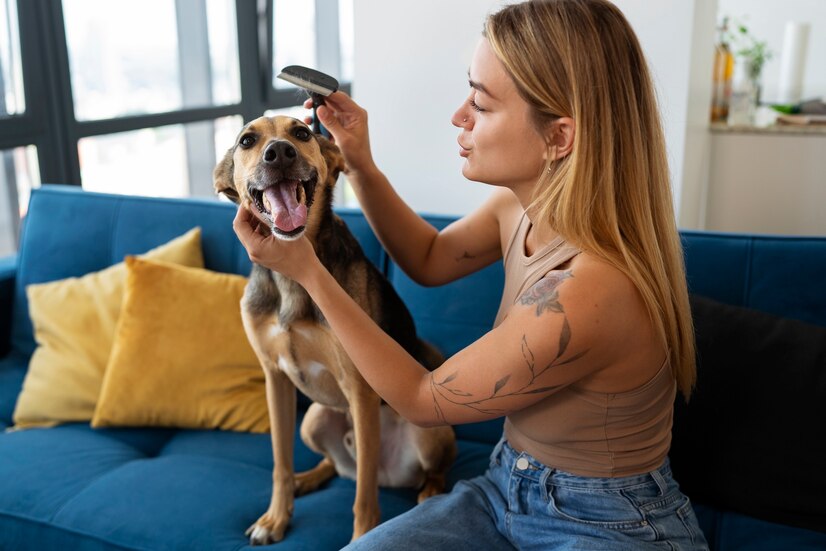Table of contents
As more pet owners turn to holistic remedies, CBD (cannabidiol) continues to gain popularity for its potential to enhance pet health. But did you know that different pet breeds might respond differently to CBD? In this post, we dive into the importance of CBD for Specific Pet breeds, looking at how tailored treatments may offer more effective results for your furry friend.
What Is CBD and Why Use It for Pets?

CBD is a non-psychoactive compound derived from the hemp plant. Unlike THC, it won’t make your pet “high,” but it may offer a range of wellness benefits including:
- Pain relief
- Anxiety reduction
- Seizure management
- Anti-inflammatory effects
- Appetite and digestive support
CBD is available in oils, treats, capsules, and topicals, and it’s used for both dogs and cats.
Why Breed-Specific CBD Matters
Each pet breed comes with its own set of characteristics, sensitivities, and common health conditions. Factors like size, metabolism, and genetic predispositions influence how CBD is absorbed and processed in your pet’s body.
Key reasons breed matters:
- Size & Dosage Sensitivity
Smaller breeds often need lower doses due to faster metabolisms. - Breed-Specific Ailments
Certain breeds are more prone to anxiety, arthritis, or skin issues—conditions CBD may help with. - Behavioral Tendencies
Nervous or hyperactive breeds might benefit more from calming CBD formulas.
Best CBD Uses for Common Pet Breeds

Let’s take a look at how different breeds can benefit from CBD use:
1. Labrador Retrievers
Prone to joint pain and arthritis. CBD oils or chews may support mobility and relieve discomfort.
2. Chihuahuas
Often suffer from anxiety and stress. A low-dose CBD tincture can help them stay calm during storms or while traveling.
3. Bulldogs
Experience breathing issues and skin infections. CBD balms and treats can ease inflammation and promote skin healing.
4. German Shepherds
Susceptible to hip dysplasia and nervous tension. Full-spectrum CBD can be effective in both pain and anxiety management.
5. Persian Cats
Deal with skin conditions and kidney issues. CBD may reduce inflammation and support overall wellness when used under a vet’s guidance.
What Does the Research Say?
While studies on CBD for Specific Pet breeds are still growing, current research points to breed and size being influential in how CBD is absorbed and used:
- A 2022 veterinary study found absorption rates varied significantly between small and large dog breeds.
- Emerging feline studies indicate that cats process CBD differently, especially based on breed metabolism and coat thickness.
- Breed-specific sensitivities have been observed in anecdotal vet reports, highlighting the need for individualized dosing.
How to Choose the Right CBD for Your Pet’s Breed
Here are a few practical tips for pet owners:
- ✅ Choose products specifically formulated for your pet’s species (dog/cat).
- ✅ Look for breed- or size-specific CBD options where available.
- ✅ Start with low doses and increase gradually based on response.
- ✅ Use only lab-tested, THC-free, organic CBD products.
- ✅ Consult your vet before beginning any new supplement.
FAQs About CBD for Specific Pet Breeds
Yes, but dosing and product type should be tailored to the breed and individual health concerns.
No. Cats and dogs have different needs. Always choose species-specific products.
Start with the lowest dose recommended for their weight and adjust slowly, ideally with veterinary guidance.
Look for side effects like drowsiness, upset stomach, or changes in appetite—especially during the first few uses.
Some premium brands are beginning to offer breed- and size-specific CBD formulas tailored to common health issues.
Final Thoughts: Personalizing CBD for Your Pet’s Breed
Using CBD for Specific Pet breeds isn’t just about dosing—it’s about understanding your animal’s unique needs. Whether you’re helping a nervous Chihuahua, a senior Labrador, or a Persian cat with skin issues, personalized CBD treatments can make a meaningful difference in your pet’s quality of life. Always choose high-quality products and consult your veterinarian for the best outcomes.





